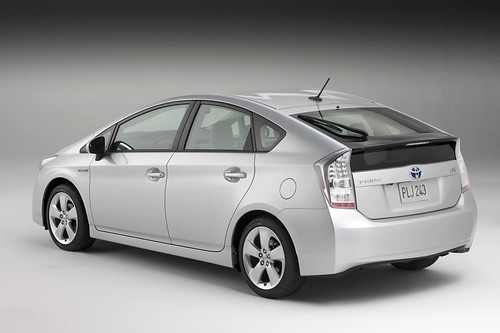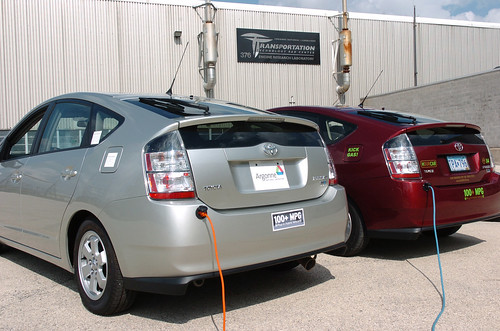Toyota reports $819 million quarterly loss; Prius is Top-Seller Again in Japan in July; Up Almost 4x Year-on-Year
(Source: Green Car Congress, AP, Wall Street Journal & The Japan Times Online)
Toyota’s Prius was the top-seller in Japan in July, with 27,712 units sold—almost quadruple the 7,058 units sold in July 2008, up nearly 25 percent from June, according to data from the Japan Automotive Dealers Association (JADA).
For a second straight month, Prius has bagged the top-seller title, underscoring robust demand for fuel-efficient vehicles. Demand for gasoline-electric vehicles has surged in Japan, helped by tax breaks and subsidies under a government initiative to promote cleaner automobiles. Toyota has said customers placing orders now for the Prius will have to wait until at least April for delivery due to surging demand.
Toyota Motor Kyushu Inc. said Thursday that orders for the hybrid version of its luxury Lexus sedan have been robust, leading the Toyota unit to expand production of the model.
Orders for the HS250h Lexus hybrid launched July 14 have reached 8,600 units, far more than the monthly target of 500, Seiichi Sudo, president of the Toyota unit, said in Fukuoka.
“Orders are very brisk as customers endorse its environmental performance,” he said.
The company is making employees work 30 to 90 minutes of overtime a day to meet demand, Sudo said, warning, however, that delivery of many ordered cars could be delayed beyond the March 31 expiry for the government’s subsidy program.
Overall auto sales in Japan declined 4.2% to July to 289,927. Toyota sales decreased 3% to 135,535 according to JADA. This decline in Japan’s auto sales for July was the smallest since the world’s third biggest auto market started shrinking last August.
This was the 12th straight month of decline, but it was much smaller than the 13.5% drop in June.
The results for the April-June quarter showed that Toyota Motor Corp. is getting some traction from aggressive cost-cutting and Japanese government incentives that have boosted sales of green cars like the Prius. Analysts surveyed by Thomson Reuters had forecast a fiscal first quarter loss of 210 billion yen.
Booming sales of the Prius hybrid helped the world’s No. 1 automaker Toyota deliver a smaller-than-expected 77.82 billion yen ($819 million) quarterly loss and narrow its forecast of red ink for the full year.
Click here to read the entire article.


